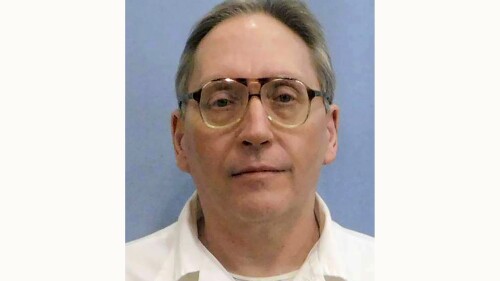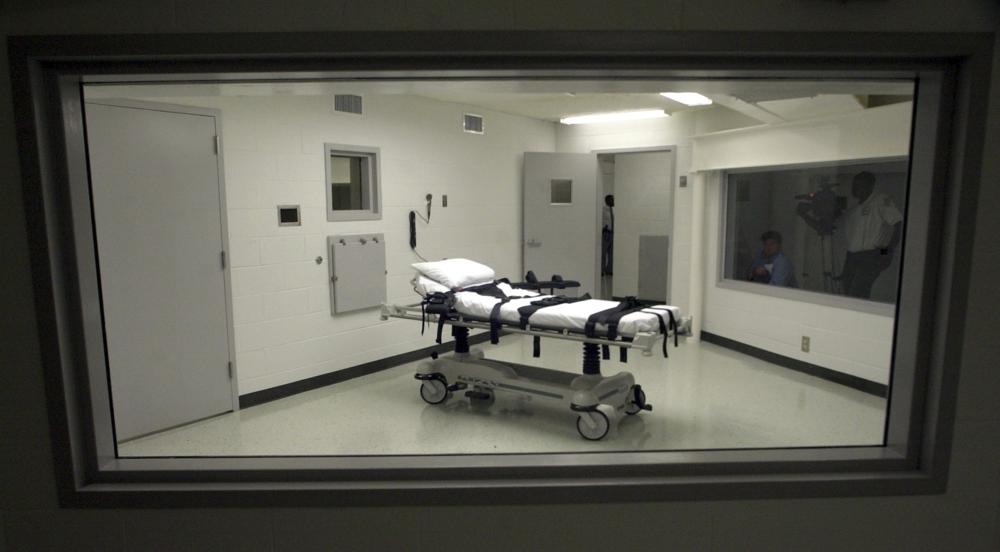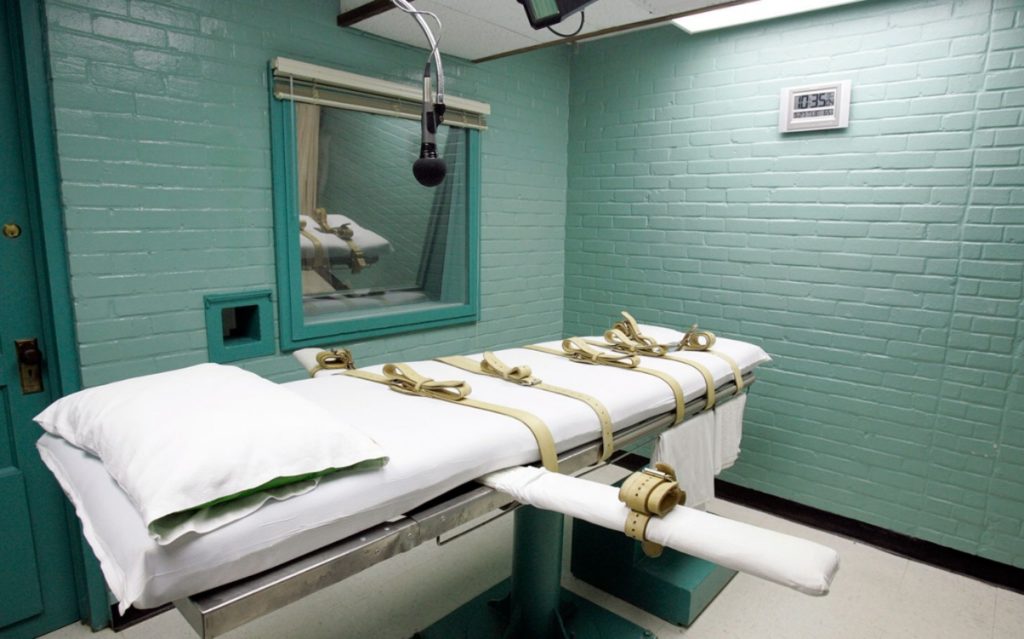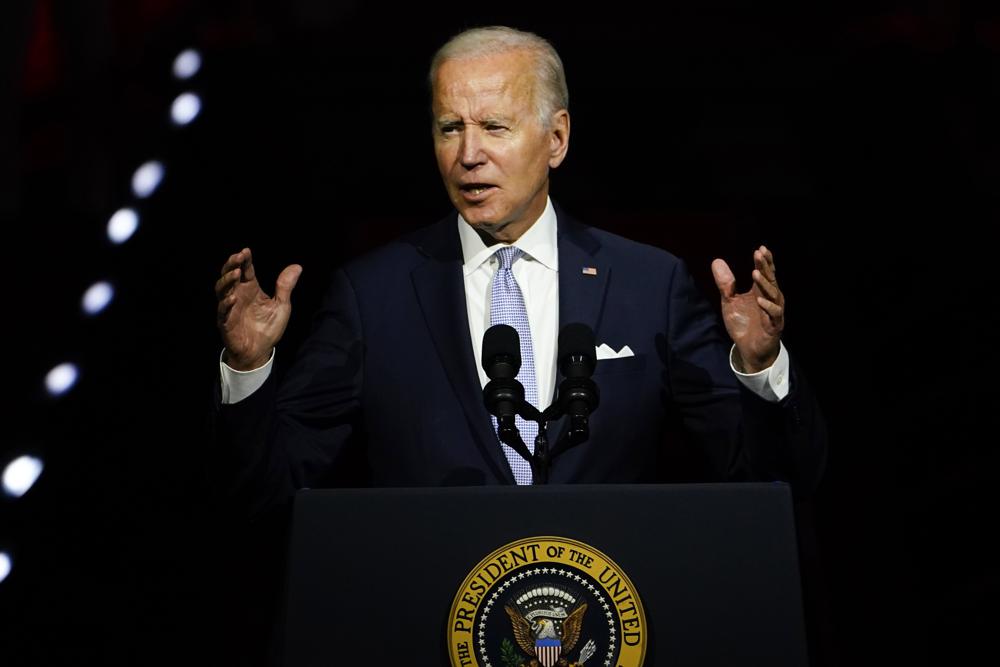In $11.3M federal fund maneuver, Planned Parenthood services expand

Tennessee and Oklahoma will receive a combined $11.3 million in federal Title X money in a workaround after the states were denied that money earlier this year. The U.S. Department of Health and Human Services announced that $3.9 million each in federal funds will go to both the Virginia League for Planned Parenthood and Converge Inc. in Mississippi to expand services into Tennessee. Meanwhile, the Missouri Family Health Council will receive $3.3 million to expand service into Oklahoma. HHS withheld $4.5 million in federal Title X funds from Oklahoma earlier this year and more than $7 million from Tennessee. Title X, according to the federal website, “is the only federal grant program dedicated solely to providing individuals with comprehensive family planning and related preventive health services.” Tennessee Gov. Bill Lee said the maneuver was “wrong on many levels” and HHS should correct its actions. “The federal government withheld critical funding from TN families, so they could funnel taxpayer dollars to a radical political organization,” Lee said on social media. “Some things should simply rise above politics – especially resources that TN mothers, children & families have counted on for decades.” Earlier this year, HHS provided Tennessee with notice because it was not complying with federal regulations. It was recommended to not receive Title X funding. “Title X recipients must follow all federal regulatory requirements regarding nondirective options counseling and referrals, including providing referrals for abortion upon client request,” the letter from HHS’ Office of Population Affairs said. The Tennessee Faith and Freedom Coalition objected to the move to shift federal funding to Planned Parenthood of Tennessee and North Mississippi through a workaround that its CEO acknowledged in a statement to the media, saying the group partnered with the Virginia office to receive the funding. “It is also egregious to note that the Biden Administration ignores and enables the evil history and practices of Planned Parenthood by giving them more taxpayer dollars, as their founder Margaret Sanger demonstrated in her writings and speeches, as evidenced in their targeting of minority communities, and their sick practices involving the tissue of dead children,” the Faith and Freedom Coalition said in a statement. “Furthermore, it is ridiculous to give that organization taxpayer money, irregardless of one’s position on abortion. “Roe v. Wade is dead, and the world is better for it. Women deserve better than abortion.” Republished with the permission of The Center Square.
Alabama to carry out first lethal injection after review of execution procedures

Alabama plans to execute an inmate on Thursday for the 2001 beating death of a woman as the state seeks to carry out its first lethal injection after a pause in executions following a string of problems with inserting the IVs. James Barber, 64, is scheduled to be put to death Thursday evening at a South Alabama prison. It is the first execution scheduled in the state since Alabama Gov. Kay Ivey paused executions in November to conduct an internal review. Ivey ordered the review after two lethal injections were called off because of difficulties inserting IVs into the condemned men’s veins. Attorneys for inmate Alan Miller said prison staff poked him with needles for over an hour as they unsuccessfully tried to connect an IV line to him and, at one point, left him hanging vertically on a gurney during his aborted execution in September. State officials called off the November execution of Kenneth Eugene Smith after they said they were unsuccessful in connecting the second of two required lines. Advocacy groups claimed a third execution, carried out in July after a delay because of IV problems, was botched because of multiple attempts to connect the line, a claim the state has disputed. “Given Alabama’s recent history of botched executions, it is staggering that James Barber’s lethal injection is set to take place,” Maya Foa, director of the anti-death penalty group Reprieve, said. “Three executions in a row went horribly wrong in Alabama last year, yet officials have asserted that ‘no deficiencies’ were found in their execution process.” Barber was convicted in the 2001 beating death of 75-year-old Dorothy Epps in Harvest, Ala. Prosecutors said Barber, a handyman who knew Epps’ daughter, confessed to killing Epps with a claw hammer and fleeing with her purse. Jurors voted 11-1 to recommend a death sentence, which a judge imposed. Barber’s execution was scheduled for the same day that Oklahoma executed Jemaine Cannon for stabbing a Tulsa woman to death with a butcher knife in 1995 after his escape from a prison work center. Attorneys for Barber have asked federal courts to block the lethal injection, citing the state’s past problems. The 11th U.S. Circuit Court of Appeals refused to halt the execution on Wednesday. Judges noted the state had conducted a review of procedures and wrote that “Barber’s claim that the same pattern would continue to occur” is “purely speculative.” The court noted that the Alabama Department of Corrections had changed medical personnel and lengthened the timeframe for executions. “ADOC conducted a full review of its execution processes and procedures, determined that no deficiencies existed with the protocol itself, and instituted certain changes to help ensure successful constitutional executions,” the court wrote. Barber appealed to the U.S. Supreme Court on Thursday, asking justices to stay the execution. His lawyers wrote that the “fourth lethal injection execution that will likely be botched in the same manner as the prior three.” “Alabama’s past three execution proceedings imposed needless physical and emotional suffering on inmates to such an extent that Alabama paused its lethal injection executions and undertook an internal review of its procedures,” Barber’s lawyers wrote in the Supreme Court filing. “Shockingly, however, that review resulted in no substantive changes to Alabama’s procedures or to the qualifications of those carrying out lethal injection executions.” The Alabama attorney general’s office has urged the Supreme Court to let the execution proceed. The state wrote that the previous executions were called off because of a “confluence of events—including health issues specific to the individual inmates and last-minute litigation brought by the inmates that dramatically shortened the window for ADOC officials to conduct the executions.” “Dorothy Epps, Smith’s victim, has survivors who have already waited overlong to see justice done,” the office added. The state conducted an internal review of procedures. Ivey rebuffed requests from several groups, including a group of faith leaders, to follow the example of Tennessee Gov. Bill Lee and authorize an independent review of the state’s execution procedures. One of the changes Alabama made following the internal review was to give the state more time to carry out the execution. The Alabama Supreme Court did away with its customary midnight deadline to get an execution underway in order to give the state more time to establish an IV line and battle last-minute legal appeals. The state will have until 6 a.m. Friday to start Barber’s execution. Republished with the permission of The Associated Press.
Investment standards debate moves into state legislatures

Environmental, social, and governance investment standards are a hot topic among Republican lawmakers across the U.S., who see it as a political move to force a progressive agenda. Democrats, on the other hand, see it as a smart investing strategy. Oklahoma is the latest state to attract national attention to ESG investing, even though the Legislature passed a bill regarding it last year. State Treasurer Todd Russ published a list of 13 financial institutions banned from doing business with the state of Oklahoma earlier this month because of their ESG policies regarding fossil fuels. Those 13 companies have 90 days to tell the state it has stopped boycotting energy companies. And if they haven’t stopped their boycott, the law grants the state six months to divest itself of 50% of investments with the financial company and a full year to divest 100%. In Tennessee, Gov. Bill Lee signed a bill that prevents the state’s treasurer from investing state funds based on ESG. The bill’s fiscal note states it will not significantly impact state or local revenues. Some Republican states are raising concerns and sometimes rejecting bills banning ESG-related policies. The North Dakota House of Representatives rejected a bill that would have required the North Dakota Department of Financial Institutions to monitor banks for ESG policies. The bill would have cost the state about $1.7 million, with most of that going to salaries for additional bank examiners. The Arkansas Legislature also discussed possible fiscal implications when discussing a bill similar to Oklahoma’s, requiring the state to divest from financial institutions with ESG standards. The treasurer would also have to maintain a list of those financial institutions. Gov. Sarah Huckabee Sanders signed the legislation. Fiscal concerns have not deterred every state from opposing ESG standards. Indiana Gov. Eric Holcomb signed House Bill 1008, which prohibits the board of trustees of the Indiana public retirement system “from making an investment decision with the purpose of influencing any social or environmental policy or attempting to influence the governance of any corporation for nonfinancial purposes.” It also requires the pension board to make investment decisions “solely in the financial interest of the participants and beneficiaries of the system for the exclusive purposes of providing financial benefits to participants and beneficiaries and defraying reasonable expenses of administering the system.” This despite concerns the state could lose $6.7 billion in investments. Utah Attorney General Sean Reyes, Alabama Attorney General Steve Marshall, and Illinois State Treasurer Michael Frerichs testified before the U.S. House Oversight Committee earlier this month. Frerichs told the panel that ESG was simply data used to make investment decisions. Treasurers and comptrollers from Colorado, Connecticut, Delaware, Massachusetts, New York City, Oregon, Vermont, and Washington state issued a statement backing Frerichs’ testimony. “The truth is simple. More data on risk leads to stronger returns for retirement accounts over the long term,” they said. “Ignoring risks to focus on short-term gains is not aligned with the needs of millions of Americans saving for retirement or their families’ education. But it is aligned with a short-term outlook to boost corporate profits. That’s why we’re hearing such loud and manufactured outrage against responsible investing.” While Republicans are banning financial institutions with ESG investment standards, Democratic-controlled states are embracing policies. New York lawmakers are considering a bill establishing a Green New Deal task force. The task force would develop a “detailed statewide, industrial, economic mobilization plan for the transition of the New York economy to become greenhouse neutral by 2030.” One of the bill’s goals is to promote “economic and environmental justice and equality.” Washington state lawmakers are considering a bill that would require “the state investment board publicly report on the climate-related financial risk, social responsibility, and proxy voting and corporate governance policies within its private and public market portfolios, including the alignment of the fund with the Paris climate agreement and Washington’s climate policy goals.” The legislation has yet to be heard in committee. In Arizona, the Republican-majority Legislature passed a bill banning banks from using a “social credit score” when making lending decisions. Democratic Gov. Katie Hobbs vetoed the bill, calling it ambiguous as it doesn’t define a “social credit score.” And in Illinois, Democratic lawmakers passed a bill that requires investment managers of Illinois public funds, including pension systems, to disclose how they integrate environmental, social, and governance policies into their investment strategies. The bill is set to be sent to Democratic Gov. J.B. Pritzker. Republished with the permission of The Center Square.
Republican governors ask Biden administration to rescind Title IX guidance

Twenty-five of the nation’s 26 Republican governors have asked the Biden administration to shelve its intent to expand Title IX protections to transgender athletes. The letter, led by the signature of Mississippi Gov. Tate Reeves, says the U.S. Department of Education’s proposed regulation should be withdrawn pending litigation that could be addressed by the U.S. Supreme Court. “The Department’s proposed regulation would attempt to coerce compliance with an uncertain, fluid, and completely subjective standard that is based on a highly politicized gender ideology,” the letter reads. The letter comes as the public comment period ends Monday on a proposed revision to Title IX that would ban state and local governments from prohibiting transgender students from participating on sports teams aligned with their gender identity. Title IX was created to increase opportunities for female athletes. Federal funds can be withheld from those found to be in violation. The law, which was passed in 1972, prohibits discrimination based on sex for school districts, universities, museums, and other educational institutions that receive federal funds. “Compelling a subjective, athlete-by-athlete analysis controlled by a student’s self-identified ‘gender identity’ enforced under threat of Department retribution affords no clarity,” the letter reads. “It does the opposite. This ‘fluid’ subjective standard ensures chaos and confusion in schools and will no doubt result in protracted and disruptive litigation.” Twenty-one states prohibit transgender students from participating on sports teams that do not align with their biological sex at birth, according to the Movement Advancement Project that tracks state policies. The letter was signed by Alabama Gov. Kay Ivey, Alaska Gov. Mike Dunleavy, Arkansas Gov. Sarah Sanders, Florida Gov. Ron DeSantis, Georgia Gov. Brian Kemp, Idaho Gov. Brad Little, Indiana Gov. Eric Holcomb, Iowa Gov. Kim Reynolds, Missouri Gov. Mike Parson, Montana Gov. Greg Gianforte, Nebraska Gov. Jim Pillen, Nevada Gov. Joe Lombardo, New Hampshire Gov. Chris Sununu, North Dakota Gov. Doug Burgum, Ohio Gov. Mike DeWine, Oklahoma Gov. Kevin Stitt, South Carolina Gov. Henry McMaster, South Dakota Gov. Kristi Noem, Tennessee Gov. Bill Lee, Texas Gov. Greg Abbott, Utah Gov. Spencer Cox, Virginia Gov. Glenn Youngkin, West Virginia Gov. Jim Justice, and Wyoming Gov. Mark Gordon. The signature of Vermont Republican Gov. Phil Scott is not on the letter. Republished with the permission of The Center Square.
Gov. Kay Ivey says state will resume executions

Alabama Gov. Kay Ivey said Friday that the state is ready to resume executions and “obtain justice” for victims’ families after lethal injections were paused for three months for an internal review of the state’s death penalty procedures. The governor in November directed the state prison system to undertake a “top-to-bottom” review of death penalty procedures after the state was forced to cancel three lethal injections because of problems with intravenous lines. Alabama Corrections Commissioner John Hamm told Ivey in a letter shared with news outlets that his staff is ready to resume executions after making internal changes related to staffing and equipment. However, critics argued that the review should have been conducted by an outside group instead of the state agency “responsible for botching multiple executions.” The governor’s office did not release a detailed report on the review’s findings but shared the letter from the head of the prison system. Hamm said the prison system is adding to its pool of medical professionals, ordered new equipment, and has conducted rehearsals. He also noted changes that will give the execution team more time to complete its duties. The Alabama Supreme Court, at Ivey’s request, last month issued a ruling that gives the state more time to carry out a death sentence by allowing the warrants that authorize executions to last for longer than 24 hours. In a Friday letter to Alabama Attorney General Steve Marshall, Ivey wrote that it is “time to resume our duty in carrying out lawful death sentences.” Ivey had asked Marshall to stop seeking execution dates until the review was complete. “Far too many Alabama families have waited for far too long — often for decades — to obtain justice for the loss of a loved one and to obtain closure for themselves,” Ivey said in the letter, which was also released publicly. “This brief pause in executions was necessary to make sure that we can successfully deliver that justice and that closure.” Marshall on Friday filed a motion with the Alabama Supreme Court seeking an execution date for James Barber, who was sentenced to death for the 2001 beating death of 75-year-old Dorothy Epps. Marshall said his office would be “seeking death warrants for other murderers in short order.” “In Alabama, we recognize that there are crimes so heinous, atrocious, and cruel … that the only just punishment is death,” Marshall said. Ivey rebuffed requests from a group of faith leaders and advocates to follow the example of Tennessee Gov. Bill Lee and authorize an independent review of the state’s execution procedures. Dozens of attorneys sent a letter to Ivey this week seeking an independent review instead of the internal one she authorized. “Throughout this process, we have argued that it is unreasonable to believe that the agency responsible for botching multiple executions can thoroughly investigate itself and suggest remedies to correct its own behavior,” JaTaune Bosby Gilchrist, executive director of the ACLU of Alabama, said in a statement. Christine Freeman, executive director of the Middle District of Alabama Federal Defender Program, a nonprofit that represents people on death row, said the result of Ivey’s review is “disappointing, but sadly not surprising.” “Instead of acting in the measured manner of the governor of Tennessee, by operating in the open with an independent commission, Alabama has once again chosen to pretend that there are no problems and not disclose what ‘review’ actually occurred,” Freeman wrote in an emailed statement. Ivey announced a pause on executions in November after a third lethal injection failed. Executioners were unable to get an intravenous line connected to death row inmate Kenneth Eugene Smith within the 100-minute window between the time courts cleared the way and midnight when the death warrant expired. It was the third such instance of the state calling off an execution because of IV line difficulties. The state completed an execution in July after problems establishing an IV line, but an anti-death penalty group has claimed the execution was botched. Hamm said the Department of Corrections reviewed its training for staff and medical workers involved in executions and its legal strategy in litigation; and increased the number of medical personnel utilized by the department for executions and the equipment available to assist them. He said the department also conducted rehearsals and reviewed procedures in other states. Hamm said the vetting process for the new medical personnel will begin immediately. His letter did not elaborate on what duties those workers will perform or what additional equipment was ordered. “I am confident that the Department is prepared as possible to resume carrying out executions consistent with the mandates of the Constitution,” Hamm wrote. “This is true in spite of the fact that death row inmates will continue seeking to evade their lawfully imposed death sentences.” The Alabama Department of Corrections did not immediately respond to an email requesting more information. The independent Tennessee review found the state had not complied with its own lethal injection process ever since it was revised in 2018, resulting in several executions that were conducted without proper testing of the drugs used. A review was also conducted in Oklahoma after the 2014 execution of Clayton Lockett where Lockett struggled on a gurney for 43 minutes before he was declared dead. The review was conducted by a separate state agency from the prison system. Republished with the permission of The Associated Press.
Black Hawk pilots killed in Alabama crash were experienced

Two Tennessee National Guard pilots killed when their Black Hawk helicopter crashed along an Alabama highway were both experienced aviators with more than a dozen years of military service apiece, military officials said Thursday. The National Guard identified the pilots as Chief Warrant Officer 3 Daniel Wadham of Joelton, Tennessee, and Chief Warrant Officer 3 Danny Randolph of Murfreesboro. Tennessee. The soldiers were assigned to A Company, 1-230th Assault Helicopter Battalion, from Nashville’s Berry Field Air National Guard Base. Wadham had 15 years of military service, and Randolph had had 13 years of military service, officials said. The helicopter crashed during a training exercise Wednesday, plummeting into a highway in a community just outside Huntsville, Alabama, and catching fire as it hit the ground. The Tennessee National Guard said in a statement that the helicopter was approaching the Huntsville Executive Airport, “when the aircraft rapidly descended and impacted the ground.” “Words cannot express my sorrow for the loss of these two Tennessee National Guardsmen,” Brig. Gen. Warner Ross, Tennessee’s adjutant general, said in a statement. “It is felt not only within the ranks of the Tennessee National Guard, but across our entire military community. We ask that Tennesseans continue to join us in prayer for these soldiers’ families amid this tragic loss.” The UH-60 helicopter, more widely known as a Black Hawk, crashed along Alabama Highway 53 in the unincorporated community of Harvest, the Alabama Law Enforcement Agency said. The Madison County sheriff’s office said there were no injuries to anyone on the ground when the helicopter crashed. Officials have not yet released information about a possible cause of the crash. A safety investigation team from the U.S. Army Combat Readiness Center, headquartered at Fort Rucker, Alabama, will lead the investigation into the accident, Jimmie E. Cummings, Jr., a spokesman for the U.S. Army Combat Readiness Center wrote in an email. The center normally assumes responsibility of lead investigating agency when accident findings may have an Army-wide impact, Cummings said. Tammy Adams told WAAY that she was driving along Alabama 53 in Harvest when she saw the helicopter fall and explode on impact. “We heard a very loud — like a car without a muffler, but we knew it was in the sky. Looking up in the air, we saw the helicopter and BAM! We hear it hit. We saw it hit the ground, and it exploded,” Adams recalled. I just hollered, ‘My Lord! My God!’ Because nobody could have survived that,” she said. Micheal Mclein told WAFF that he was on his way to pick up his daughter from school when he heard the crash. “As soon as it hits, you heard it, you seen the smoke,” Mclein told the station. Local news outlets showed large plumes of black smoke rising from the crash site. “It’s a travesty because you know these guys go out here to put their lives on the line and fight for us, and then you got this where they’re just flying and die like that? It’s not the way it should’ve went.” The sheriff’s office cautioned residents that debris could be scattered across areas near the crash site and asked residents to call authorities if they find any wreckage. Harvest is just northwest of Huntsville, which is home to NASA’s Marshall Space Flight Center and the U.S. Army’s Redstone Arsenal. The once-rural area has become increasingly suburban and is about 90 miles south of Nashville. “Maria and I are deeply saddened by the tragic loss of two Tennessee National Guard members,” said Tennessee Gov. Bill Lee on Wednesday. “Please join us in lifting their families up in prayer and support during this time of unspeakable grief.” A spokesperson for the Federal Aviation Administration referred questions to the military. “Governor Lee, Alabamians will continue to uplift in prayer the families affected by this heartbreaking tragedy,” Alabama Gov. Kay Ivey said. “The Guardsmen who lost their lives today will be remembered as heroes. The people of Alabama stand with our neighbors in Tennessee.” Over the years, a handful of Black Hawk helicopters were in crashes during training exercises. In 2022 in Utah, whiteout conditions caused a Black Hawk helicopter pilot during a training exercise to lose sight of where he was trying to land, causing a crash with another helicopter near a Utah ski resort. None of the men and women aboard the helicopter or the dozens of skiers nearby at the resort were injured. In 2021, three Idaho Army National Guard pilots died when their Black Hawk helicopter crashed near Boise during a training flight. And in 2020, two soldiers were killed, and three were injured when their Black Hawk helicopter crashed during a training exercise off Southern California’s coast. Republished with the permission of the Associated Press.
Black Hawk helicopter crashes in Alabama, killing 2 crew

A Black Hawk helicopter from the Tennessee National Guard crashed Wednesday in Alabama, killing two crew members, the Tennessee National Guard said. “We are deeply saddened by the loss of two Tennessee National Guardsmen, and our prayers are with their families during this heartbreaking tragedy,” Brig. Gen. Warner Ross, Tennessee’s Adjutant General, said in a statement. “We ask Tennesseans to join us in supporting their families during this time of unthinkable grief.” According to Ross, two members of the Tennessee National Guard were killed during a flight- training mission. The helicopter crashed around 3 p.m. local time and caught fire. The Madison County sheriff’s office said there were no injuries to anyone on the ground when the helicopter crashed. “We have no survivors,” sheriff’s Investigator Brent Patterson said. “We have a crime scene here. We have it taped off.” The UH-60 helicopter, more widely known as a Black Hawk, crashed in the unincorporated community of Harvest along Alabama Highway 53, the Alabama Law Enforcement Agency said in a statement. The highway along which the crash happened passes through commercial areas northwest of Huntsville that are bounded by subdivisions, forests, and fields south of the state line with Tennessee. The sheriff’s office said in a statement that the crash was causing heavy traffic delays that are expected to last into Thursday. Harvest is just northwest of Huntsville, which is home to NASA’s Marshall Space Flight Center and the U.S. Army’s Redstone Arsenal. The once rural area has become increasingly suburban and is about 90 miles south of Nashville. “Maria and I are deeply saddened by the tragic loss of two Tennessee National Guard members,” said Tennessee Gov. Bill Lee on Wednesday. “Please join us in lifting their families up in prayer and support during this time of unspeakable grief.” A spokesperson for the Federal Aviation Administration referred questions to the military. “Governor Lee, Alabamians will continue to uplift in prayer the families affected by this heartbreaking tragedy,” Alabama Gov. Kay Ivey said. “The Guardsmen who lost their lives today will be remembered as heroes. The people of Alabama stand with our neighbors in Tennessee.” Local news outlets showed large plumes of black smoke rising from the crash site. Multiple emergency response vehicles were on scene. “I’m deeply saddened by the fatal helicopter crash that happened in Madison County today,” U.S. Rep. Dale Strong, who represents Alabama’s 5th District, said in a tweet. “My heart hurts for those who lost their lives in this tragic incident and for their families as they learn of this news.” Over the years, a handful of Black Hawk helicopters were in crashes during training exercises. In 2022 in Utah, whiteout conditions caused a Black Hawk helicopter pilot during a training exercise to lose sight of where he was trying to land, causing a crash with another helicopter near a Utah ski resort. None of the men and women aboard the helicopter or the dozens of skiers nearby at the resort were injured. In 2021, three Idaho Army National Guard pilots died when their Black Hawk helicopter crashed near Boise during a training flight. And in 2020, two soldiers were killed, and three were injured when their Black Hawk helicopter crashed during a training exercise off Southern California’s coast. Republished with the permission of The Associate Press.
Faith leaders urge independent review of Alabama executions

More than 170 pastors and other faith leaders on Tuesday urged Alabama Gov. Kay Ivey to authorize an independent review of execution procedures, as Oklahoma and Tennessee did after a series of failed lethal injections in those states. The group applauded Ivey for taking the “bold and necessary step” of ordering a review of Alabama execution procedures following problems locating intravenous lines during three lethal injections but said that review should be done by those outside the state prison system. Ivey, in November, ordered the Alabama Department of Corrections, which carries out executions, to undertake the review. “Given the gravity of what has transpired, we respectfully request a comprehensive, independent, and external review of Alabama’s death penalty procedures,” they wrote in a letter delivered to Ivey’s Alabama Capitol Office on Tuesday. The faith leaders said the review should be conducted openly — and by a person or group other than the Alabama Department of Corrections. “The fact of the matter is that an agency that has failed repeatedly to get its own house in order cannot be trusted to privately conduct an investigation into problems it is causing,” they wrote. The group cited the example of Tennessee Gov. Bill Lee, who authorized a state review after acknowledging that the state failed to ensure its lethal injection drugs were properly tested. A former U.S. attorney conducted the review. It found Tennessee had not complied with its own lethal injection process ever since it was revised in 2018, resulting in several executions that were conducted without proper testing of the drugs used. A review was also conducted in Oklahoma after the 2014 execution of Clayton Lockett. After the first drug was administered, Lockett struggled on a gurney for 43 minutes before he was declared dead. The review was conducted by a separate state agency from the prison system. It was later learned that members of the execution team had improperly inserted an IV into a vein in Lockett’s groin. The independent Oklahoma Death Penalty Review Commission also scrutinized state procedures. Ivey cited concerns for the victims and their families in ordering the review in Alabama. “For the sake of the victims and their families, we’ve got to get this right,” Ivey said. Carrying out an execution is the state’s responsibility to uphold the law and to ensure justice, Ivey spokesperson Gina Maiola wrote in a statement. “This is a responsibility Governor Ivey takes very seriously, and as she has made very clear along the way, this will review remain transparent as is appropriate while also protecting sensitive information,” she continued. The Alabama review has so far yielded changes to make it easier to carry out death sentences. At Ivey’s request, the Alabama Supreme Court gave the state a longer amount of time to carry out executions by allowing death warrants authorizing an execution to last for more than 24 hours. Ivey announced the pause on executions after a third failed lethal injection in the state. The state called off the November execution of Kenneth Eugene Smith after failing to get an intravenous line connected within the 100-minute window between when courts cleared the way for it to begin and the death warrant’s midnight deadline expired. In September, the state called off the scheduled execution of Alan Miller because of difficulty accessing his veins. Alabama, in 2018 called off the execution of Doyle Hamm because of problems getting the intravenous line connected. Hamm had damaged veins because of lymphoma, hepatitis, and past drug use, his lawyer said. The state completed an execution in July, but only after a three-hour delay caused at least partly by the same problem with starting an IV line. Republished with the permission of The Associated Press.
25 GOP governors ask Biden administration to hit pause on broader clean water rule

Twenty-five Republican governors oppose a revised federal rule regulating U.S. waterways, citing uncertainty from an undecided U.S. Supreme Court case related to the rule. The governors sent a letter to the Biden administration on Monday asking it to delay the implementation of the revised Waters of the United States rule since the U.S. Supreme Court is currently considering Sackett v. EPA. The revised WOTUS rule, released on Dec. 30, reinstates pre-2015 water protections under the federal Clean Water Act. The rule was scaled back under the Trump administration, which triggered lawsuits from environmental groups. “The substance of the rule hinders State governments as we seek to give clarity and consistency to businesses, farms, and individuals regarding the regulatory framework for water,” the 25 GOP governors wrote. “The broad definitions used in the 514- page document only add to the confusing and complicated history of WOTUS. In fact, it appears that the EPA is seeking to regulate private ponds, ditches, and other small water features.” The U.S. Environmental Protection Agency said in December the revised rule applies to “traditional navigable waters, the territorial seas, interstate waters, as well as upstream water resources that significantly affect those waters.” “When Congress passed the Clean Water Act 50 years ago, it recognized that protecting our waters is essential to ensuring healthy communities and a thriving economy,” EPA Administrator Michael Regan said in a statement. “Following extensive stakeholder engagement, and building on what we’ve learned from previous rules, EPA is working to deliver a durable definition of WOTUS that safeguards our nation’s waters, strengthens economic opportunity, and protects people’s health while providing greater certainty for farmers, ranchers, and landowners.” The governors also questioned the timing of the new rule, given ongoing inflation. “Another burdensome and overbroad regulation from the federal government could not come at a worse time for America,” they wrote. “Having already squandered much of America’s energy independence, you should not increase costs for consumers by tying up energy production with even more red tape.” Environmental groups praised the Biden administration’s revised WOTUS rule. “This comes at a time when we’re seeing unprecedented attacks on federal clean water protections by polluters and their allies,” Jon Devine, director of federal water policy for the Natural Resources Defense Council, said in a statement last month. “While the nation still has significant work to do to fully protect important waters, it’s encouraging to see the country taking a step in the right direction to protect the waters we need for everyone’s health and the environment.” The letter was signed by Idaho Gov. Brad Little, Alabama Gov. Kay Ivey, Alaska Gov. Mike Dunleavy, Arkansas Gov. Sarah Sanders, Florida Gov. Ron DeSantis, Georgia Gov. Brian Kemp, Indiana Gov. Eric Holcomb, Iowa Gov. Kim Reynolds, Mississippi Gov. Tate Reeves, Missouri Gov. Mike Parson, Montana Gov. Greg Gianforte, Nebraska Gov. Jim Pillen, Nevada Gov. Joe Lombardo, New Hampshire Gov. Chris Sununu, North Dakota Gov. Doug Burgum, Ohio Gov. Mike DeWine, Oklahoma Gov. Kevin Stitt, South Carolina Gov. Henry McMaster, South Dakota Gov. Kristi Noem, Tennessee Gov. Bill Lee, Texas Gov. Greg Abbott, Utah Gov. Spencer Cox, Virginia Gov. Glenn Youngkin, West Virginia Gov. Jim Justice, and Wyoming Gov. Mark Gordon. Republished with the permission of The Center Square.
GOP governors to Joe Biden: Student loan plan will be costly for American taxpayers

President Joe Biden’s student loan forgiveness plan will be costly for American taxpayers, a coalition of GOP governors said in a letter sent Monday to the White House. The letter, signed by 22 GOP governors, tells Biden to “withdraw” the plan, citing cost estimates of up to $600 billion, or $2,000 per American taxpayer. “As governors, we support making higher education more affordable and accessible for students in our states, but we fundamentally oppose your plan to force American taxpayers to pay off the student loan debt of an elite few,” the coalition wrote. The coalition includes Alabama Gov. Kay Ivey, Alaska Gov. Mike Dunleavy, Arizona Gov. Doug Ducey, Arkansas Gov. Asa Hutchinson, Florida Gov. Ron DeSantis, Georgia Gov. Brian Kemp, Idaho Gov. Brad Little, Iowa Gov. Kim Reynolds, Maryland Gov. Larry Hogan, Missouri Gov. Mike Parson, Montana Gov. Greg Gianforte, Nebraska Gov. Pete Ricketts, New Hampshire Gov. Chris Sununu, North Dakota Gov. Doug Burgum, Ohio Gov. Mike DeWine, Oklahoma Gov. Kevin Stitt, South Carolina Gov. Henry McMaster, South Dakota Gov. Kristi Noem, Tennessee Gov. Bill Lee, Texas Gov. Greg Abbott, Utah Gov. Spencer Cox, and Wyoming Gov. Mark Gordon. “At a time when inflation is sky high due to your unprecedented tax-and-spend agenda, your plan will encourage more student borrowing, incentivize higher tuition rates, and drive-up inflation even further, negatively impacting every American,” the governors added. Biden announced the plan last month during an address from the White House. “Many people – many people can’t qualify for a mortgage or buy a home because the debt they continue to carry,” Biden said. “A lot of folks are even putting off starting families because of the cost, and the dream of starting or owning your business is just way off in the distance with a debt that’s – that so many are saddled with.” The plan forgives $10,000 in federal student loan debt for those who make less than $125,000 annually, while federal Pell Grant recipients will be forgiven $20,000. The Committee for a Responsible Federal Budget has estimated that the plan’s total cost would be $440 to $600 billion. Republished with the permission of The Center Square.
Republican governors call Democrat spending bill “reckless”

Twenty-one Republican governors called the Inflation Reduction Act “another reckless tax and spending spree” in a joint statement released Thursday. The legislation, dubbed the “Democrats spending bill” by Republicans, would reduce the federal deficit, Senate Democrats said in a summary. But the $740 billion bill would hurt all Americans, the Republican governors said. “While denying recession, Democrats want to raise taxes on businesses and manufacturers, which will force higher costs onto consumers, worsen inflation, and aggravate shortages,” they said in the letter. “With sky-high prices at the pump, the last thing Americans need is for Democrats to punish energy producers, which will ultimately hurt working families struggling to pay for gas, goods, food, and utilities.” Democrats maintain the measure would reduce inflation by investing taxpayer dollars into domestic energy production and manufacturing and lowering carbon emissions by 40% by 2030. Republicans have maintained that Biden’s policies hindered energy production in the oil and gas industry, leading to record high gas prices this summer, which in part contributed to 40-year high inflation. They point to the president’s executive orders ending new leases for oil production on federal lands, ending the Keystone Pipeline construction, and other restrictions on the industry. Democrats say their bill also would allow Medicaid to negotiate prescription drug prices, something critics say will discourage investment in new treatments. The Affordable Care Act also would be extended for three years under Democrats’ plans. The bill also includes up to $7,500 in tax credits on the purchase of an electric or fuel cell vehicle made in America. Large corporations would be required to pay a minimum 15% tax, and the measure would not raise taxes on Americans making less than $400,000 a year, according to remarks by President Joe Biden. The joint statement opposing the Inflation Reduction Act was made by South Carolina Gov. Henry McMaster, Georgia Gov. Brian Kemp, Alabama Gov. Kay Ivey, Arizona Gov. Doug Ducey, Arkansas Gov. Asa Hutchinson, Florida Gov. Ron DeSantis, Idaho Gov. Brad Little, Indiana Gov. Eric Holcomb, Iowa Gov. Kim Reynolds, Mississippi Governor Tate Reeves, Missouri Gov Mike Parson, Montana Gov. Greg Gianforte, Nebraska Gov. Pete Ricketts, North Dakota Gov. Doug Burgum, New Hampshire Gov. Chris Sununu, Oklahoma Gov. Kevin Stitt, Tennessee Gov. Bill Lee, Texas Gov. Greg Abbott, Utah Gov. Spencer Cox, Virginia Gov. Glenn Younkin, and Wyoming Gov. Mark Gordon. Republished with the permission of The Center Square.
Despite push, states slow to make Juneteenth a paid holiday

Recognition of Juneteenth, the effective end of slavery in the U.S., gained traction after the police killing of George Floyd in 2020. But after an initial burst of action, the movement to have it recognized as an official holiday in the states has largely stalled. Although almost every state recognizes Juneteenth in some fashion, many have been slow to do more than issue a proclamation or resolution, even as some continue to commemorate the Confederacy. Lawmakers in Alabama, Mississippi, South Carolina, Tennessee, and other states failed to advance proposals this year that would have closed state offices and given most of their public employees paid time off for the June 19 holiday. That trend infuriates Black leaders and community organizers who view making Juneteenth a paid holiday the bare minimum state officials can do to help honor an often overlooked and ignored piece of American history. “Juneteenth marks the date of major significance in American history. It represents the ways in which freedom for Black people have been delayed,” said Democratic Rep. Anthony Nolan, who is Black, while arguing in favor of making Juneteenth a paid holiday in Connecticut on the House floor. “And if we delay this, it’s a smack in the face to Black folks.” Juneteenth commemorates when Union soldiers brought the news of freedom to enslaved Black people in Galveston, Texas, in 1865, two months after the Confederacy had surrendered in the Civil War and about 2 1/2 years after the Emancipation Proclamation freed slaves in Southern states. Last year, Congress and President Joe Biden moved swiftly to make Juneteenth a national holiday. It was the first time the federal government had designated a new national holiday since approving Martin Luther King Jr. Day in 1983. Yet the move didn’t result in an automatic adoption from most states. In Alabama, Republican Gov. Kay Ivey issued another proclamation marking Juneteenth a state holiday earlier this week after state lawmakers refused to take action on a bill during their legislative session even after she voiced strong support for making it a permanent holiday back in 2021. The state closes down for Confederate Memorial Days in April. Similarly, Wyoming’s Republican Gov. Mark Gordon issued a statement last June saying he would work with lawmakers to make it a state holiday, but no legislation was filed during the 2022 session. In Tennessee, Republican Gov. Bill Lee quietly tucked enough funding — roughly $700,000 — to make Juneteenth a state-paid holiday in his initial spending plan for the upcoming year. Despite the bill gaining traction in the state Senate, GOP legislative leaders maintained there wasn’t enough support for the idea even as Tennessee law currently designates special observances for Robert E. Lee Day, Confederate Decoration Day, and Nathan Bedford Forrest Day. “I asked many people in my district over the last few days, well over 100 people, if they knew what Juneteenth was, and only two of them knew,” said Republican Sen. Joey Hensley, who is white and voted against the proposal. “I just think we’re putting the cart before the horse making a holiday that people don’t know about.” In South Carolina, instead of working to approve Juneteenth as a holiday, Senate lawmakers unanimously advanced a bill that would allow state employees to choose any day they want to take off instead of the Confederate Memorial Day, currently enshrined as a paid holiday in state law. However, the House sent the bill to a committee, where it died without a hearing when the Legislature adjourned for the session. At the same time, many of these Republican-led areas have advanced bills limiting what can be taught about systematic racism in classrooms while also spiking proposals aimed at expanding voting rights and police reform. This year, nearly 20 states are expected to close state offices and give most of their public employees time off. At least six states officially adopted the holiday over the past few months, including Connecticut, Colorado, Georgia, Maryland, South Dakota, Utah, and Washington. A bill introduced in California passed the Assembly and moved to the Senate this month, and individual cities such as Los Angeles have already signed proclamations making Juneteenth official. “Becoming a state holiday will not merely give employees a day off; it will also give residents a day to think about the future that we want, while remembering the inequities of the past,” said Democratic Del. Andrea Harrison, who sponsored the Juneteenth legislation in Maryland this year. “It will help us to reflect how far we’ve come as a nation, how much more we need to do as humankind.” Attempts to give Juneteenth the same deference as Memorial Day or July Fourth didn’t begin to gain traction until 2020 when protests sparked a nationwide push to address race after the police killing of George Floyd in Minneapolis and the deaths of other Black people by police officers. “George Floyd protests against police brutality brought awareness to Juneteenth because there were people of all races learning about its significance for the first time following a public push to self-educate and learn more about Black history, culture and injustices,” said Tremaine Jasper, a resident and business owner in Phoenix who has attended Juneteenth celebrations across Arizona with his family. Some cities in Arizona, including Phoenix, have declared Juneteenth an official holiday, paying city employees and closing municipal buildings. However, lawmakers are not currently considering statewide recognition. “There are so many other important issues that we need to tackle — education, political issues, reparations — before we prioritize making Juneteenth a statewide holiday,” Jasper said, noting that those looking to celebrate know where to go. Jasper, who was born and raised in Arizona, said it is going to be an “uphill battle” to get the state to recognize Juneteenth because there is not a large enough Black population outside of its largest cities to make the push. Arizona was also slow in recognizing Martin Luther King Jr. Day, not doing so until 1992. It was one of the last states to officially recognize the civil rights leader. Republished with the permission of The


